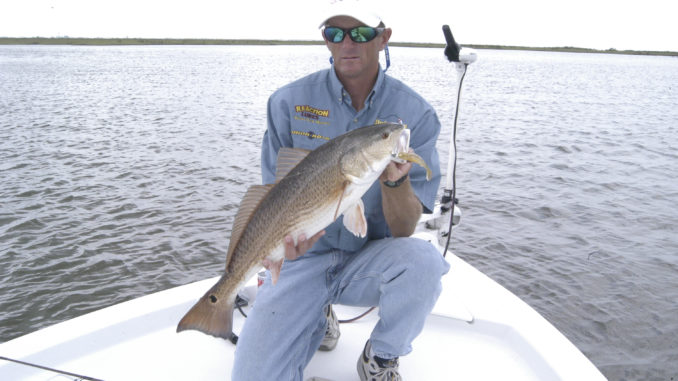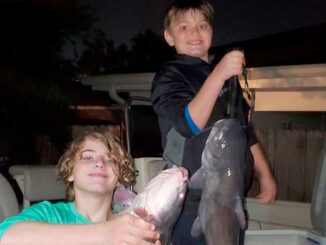
Now that the grass is coming back, bream action is picking up big-time in this overlooked lake.
Recreational fishing closures have come at a staggering pace since the Deepwater Horizon oil spill began more than a month ago, and that has left many anglers scratching their heads and sometimes fishing water that have closed without their knowledge.
“The timing to me has been the hardest thing to understand,” Baton Rouge trout angler Ed Sexton told LouisianaSportsman.com. “The closures have come at odd hours.
“I understand we’re in some difficult times, but when you close (waters) at 5:30 (p.m.) or late in the evening a lot of people are not going to get that information.”
So what happens when an enforcement agent makes a stop? Should anglers expect to be ticketed?
Agents are writing tickets to anglers for fishing in a closure zone. Preliminary Louisiana Department of Wildlife and Fisheries records show that more than 110 citations were written as of May 25.
However, LDWF spokesman Adam Einck was quick to point out that these citations represent only a fraction of the stops made.
“To date, LDWF has issued 113 citations for fishing in the closure zone, made 197 written warnings and made approximately 1,800 contacts,” Einck said then.
So what is the criteria used by agents to determine when a ticket is appropriate?
“They are writing tickets only for the most-blatant and severe violations,” Einck said.
The general policy the agency is pursuing means that anglers are given warnings for at least 24 hours after a closure has been announced, he explained.
“(Agents) will be out there on the water, and if they see people fishing (in a closed area) they will let them know the waters have been closed,” Einck said. “If they find them out there the next day, they will write a ticket.”
Einck said his agency understands the frustration of the rolling closures and is doing everything possible to make stops painless.
“They’re really trying their best to work with everybody,” he said of LDWF enforcement agents.
However, any fish caught in closed waters are being ordered thrown out immediately – even if a ticket isn’t written.
“They are in areas that have oil, and you don’t want to be eating fish from those waters,” Einck said.
Sexton said that’s infuriating.
“I went fishing in Empire when it was open, and found out later that it closed that afternoon,” he said. “I wouldn’t be real happy if I had to throw back the fish I caught.”
No contaminated redfish or trout have been found to date, and Einck admitted the order to discard fish is purely precautionary.
“Some of this, to tell the truth, is erring on the side of caution,” he said.
Sexton said he still thinks throwing away fish that might be contaminated is wasteful and should be left up to the anglers.
“I’m fixing to cook some fish that I caught (in Empire) in an area that closed while I was on the water,” he said. “If it don’t’ smell right or taste right, I won’t eat it.”
Einck did say that fish caught in open waters could be transported across a closure without fear of being ordered to throw them back.
“It’s like a deer killed in an open area and transported across an area that’s closed,” he said. “The burden is on us (to prove the deer were killed in a closed area).”
